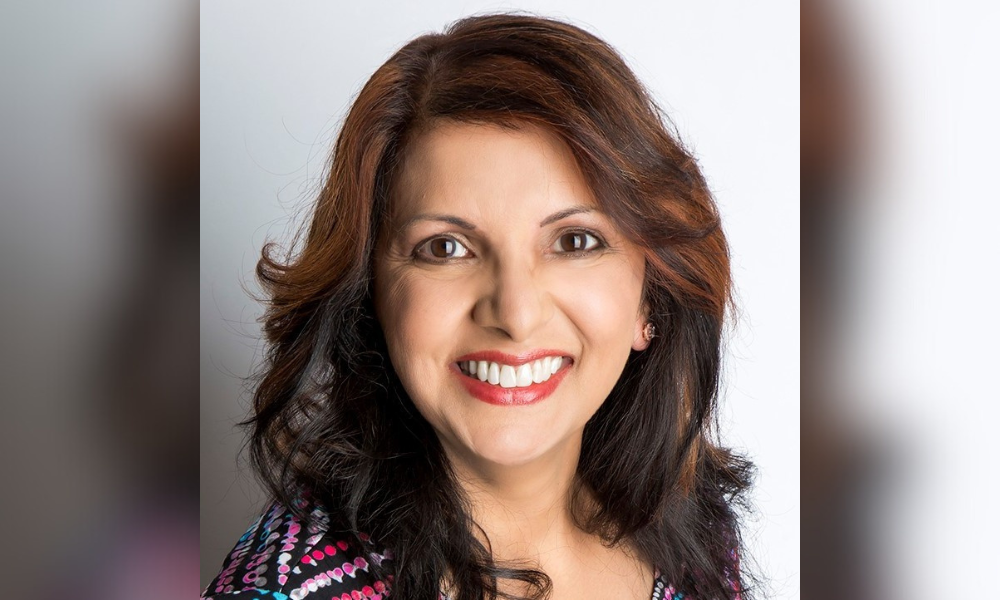
HR veteran raises the question: Is there ever a 'perfect' time to retire?

In an exclusive interview with HRD, the associate professor of HR at Mount Royal, and recipient of HRD’s coveted Lifetime Achievement Award, reveals she’s ready to leave her role and is looking forward to an early ‘retirement’.
“That phrase seems archaic to me now,” she says. “Retirement nowadays feels more like a reimagining – we have the chance to go on to pursue other passions. And I’m well aware that I’m coming at this from a position of privilege, but it’s exciting to know that this chapter is wrapping up and the next one is on the horizon.”
Peacock is one of a growing number of senior executives opting to retire early if circumstances allow. According to data from the Bank of England, the number of people retiring earlier has boomed post-pandemic, with data from the House of Lords Economic Affairs committee adding that since 2020, 565,000 people have decided they no longer wish to work.
But it’s not as if these decisions are made lightly – nor is it that early retirees are content to sit on their porches drinking sweet tea and watching the world go by. In fact, people who are retiring early are often set on looking to reimagine their careers and life goals – things they’ve considered for a long time. And for Peacock, the choice to retire was similarly a slow burn – not an instant reaction.
“Careers don’t come with an expiration date,” says Peacock. “This was a process. And while it may seem like an instant decision, I liken it more to a dimmer switch – moving from one stage to another gradually. One of my contemplations prior to retiring was thinking about what more can I give to a particular role? Have I really given all that I can? It may be you still care about your role but perhaps you’re not able to give it all that you did before – something people considering retirement should think on.”
The decision to leave, Peacock says, was made easier by the passion she saw coming in with newer employees brimming with great ideas.
“That’s very exciting,” she tells HRD. “I want to give them a chance to have their voices heard. I knew that I had given what I could to the role and the organization - and it was time to focus my energy and my efforts on other things. Again, I appreciate that I'm doing this through a lens of privilege - not everybody can make those decisions.”
And Peacock’s sadly right – while a lot of executives are opting to retire early to reinvent their careers or try something new, there’s a growing number of older workers worrying about pension plans. Research released this week from the Healthcare of Ontario Pension Plan found that 44% of non-retired Canadians aged 55 to 64 have less than $5,000 in savings – citing ongoing inflation, the cost of living crisis and higher interest rates as reasons to push back impending retirement plans.
This in itself plays into the idea of intersectionality in making sweeping life decisions – especially leaving a senior role early.
Is there ever a ‘perfect’ time to retire?
“I’m looking at the intersectionality of this,” says Peacock. “I’m a woman of colour, I’m an HR professional, I’m a businesswoman, I’m a wife, I’m a mother, I’m a Christian – all of these things intersect. I really feel that we need to talk more about intersectionality when it comes to retirement.”
And that’s the crux of it. When people decide to retire, there’s very rarely one single deciding factor in it. Rather, it’s about a cross section of everything in your life – every aspect that needs to chime and ultimately sway you one way or the other.
“Whether that’s obligations to family, a desire for more work-life balance, financial obligations, children leaving home – it’s about understanding all of these influences and balancing them off of each other to land on your time to retire,” says Peacock. “When all of these points intersect, and you realize that you can still be fulfilled, then you’ll be more comfortable in making that leap.”
Early retirement can be a restructuring – an encore so to speak. While the idea of starting a new career in retirement may once have seemed unthinkable, it’s now a reality for many. As Peacock says, she’ll be focusing on something new yet distinctly familiar.
“I’m going to be concentrating on my HR consulting business,” she tells HRD. “As well as spending time writing, travelling, and enjoying more time with friends and family. Giving that we’re all living longer, as a society we’re healthier, there’s more and more people in my position – looking to make that leap into something new.”
‘Once you’ve made that decision – enjoy it’
According to data from Statistics Canada, the number of Canadians who retired last year jumped also 50% - from 233,000 to 307,000 – a hefty chunk of the population. With so many opting to leave their current roles for pastures new, it’s important that people get their ducks in line sooner rather than later.
“If you are considering retiring, think through the process very carefully,” Peacock tells HRD. “There’s a financial and an emotional side to this. First off, develop a financial plan and do your research.
“While you can never account for everything, understanding your current position helps you know if you’re comfortable in retiring. And then, have a plan about what you’re actually going to do – how will you spend your time? What will you focus on? That’s the emotional aspect.
“Ultimately, once you’ve made that decision to retire – enjoy it. Relish it. Embrace it. Celebrate everything you have done and everything you will do in the future.”